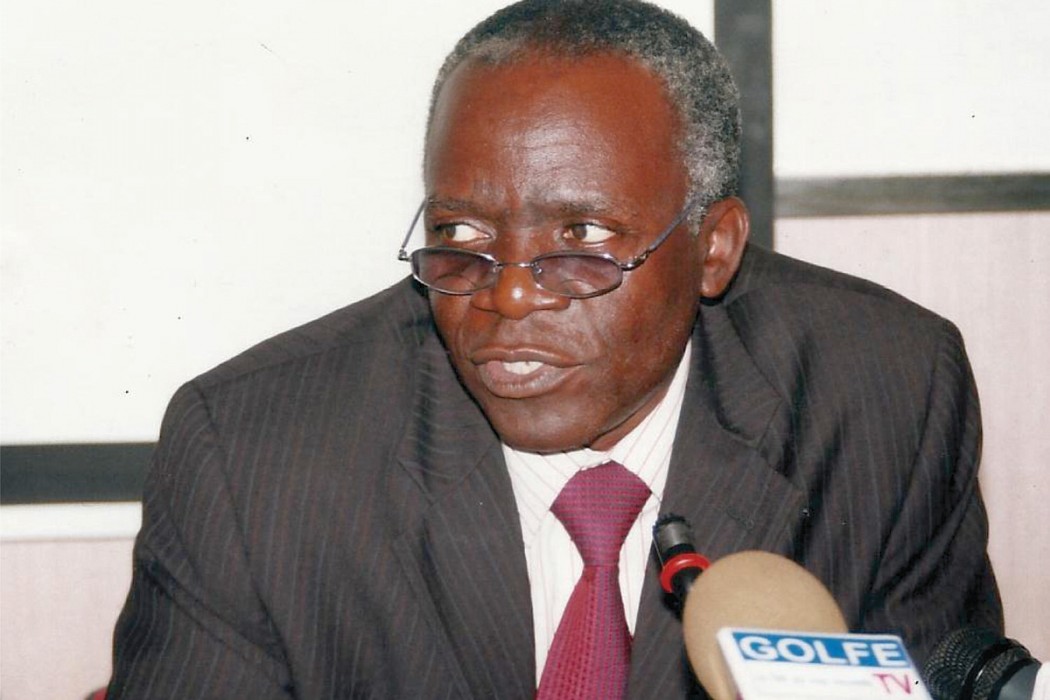Following the controversial arrest and prosecution of Joachim Chinakwe Iroko, the man who named his dog ‘Buhari’, lawyers and human rights activists have continued to display concerns, and 20 senior advocates of Nigeria and several other lawyers have shown interest in defending him.
A 41-year old trader was charged in Ogun State on Monday, August 22, 2016, for naming his pet dog, Buhari.
Iroko says that he named his dog after President Buhari because he has respect for the former military dictator. He also revealed to the press that he owns three other dogs. One he named Obama after US President Barack Obama, one he named Mandela, after Nelson Mandela, the great African icon, and one is named after himself, Joachim.
A chief magistrate, Bolaji Ojikutu, granted him a N50,000 bail after hearing the case, and adjourned the case till September 19.
However, the case has left many uneasy in regards to freedom of speech.
Activists across the nation have accused the Police and the government of acting on a matter that seems to be trivial, while far graver offenses have been ignored.
According to Premium Times, Femi Falana, a rights lawyer, said the charge was vain, adding the he would request for the charge to be discontinued.
“I am going to request the attorney-general of Ogun State to discontinue the frivolous charge,” he said.
Adding that Mr. Iroko’s ordeal had no place in the Nigerian constitution as Joachim naming his dog his desired name was a practice of his basic rights to free speech which should not be restrained by the Nigerian government.
“It is against Section 36(9) of the Constitution to charge a man for a criminal offense that is unknown to law,” Mr. Falana said. “It is also illegal to use the machinery of government to harass any citizen.
“If the president is aggrieved by the naming of dog after him, he is at liberty to sue for libel. But the police cannot invoke criminal proceeding to intimidate the fellow.”
Inibehe Effiong, a human rights lawyer, said the “fixation” with Mr. Iroko despite sundry pressing issues, highlights the “reckless, arbitrary and intolerable abuse of law enforcement powers by the police”.
The convener of Coalition of Human Rights Defenders, Mr. Effiong, had said that Mr. Iroko only exercised freedom of speech which did not go against the constitution under which he is being prosecuted, adding that the Police’ timing appeared to be suspicious.
“The fact that an individual or a section of the public considers a person’s conduct repulsive and reprehensible does not necessarily bring such conduct within the contemplation of Section 249 (1) (d) of the Criminal Code so as to occasion a likelihood of breach of the peace,
“Let’s ask the police one question: why are they just arresting him now?” Mr. Iroko said. “He got the dog as a gift in December 2015 and gave it the name. Nobody complained for more than eight months.”
Mr. Effiong who had organized a fundraiser for Mr. Iroko’s bail on social media said he was raising a team of 100 lawyers who would defend the persecuted man against what he described to be an attack on his basic rights to free speech.
A public affairs analyst, Fola Olubanjo, said Mr. Iroko’s arrest and prosecution should not be viewed as a mere incident in the headlines.
“I’ve been watching the way the news media has been reporting this matter and I must be honest with you it’s not thorough enough,” Mr. Olubanjo said. “This should just not be so.”
“A woman was killed in Kano and another in Abuja. In both cases, they only exercised freedoms guaranteed by the Constitution,” she added.
“The government clearly doesn’t understand that if people are being arrested over a matter that is clearly in consonance with the principles of free speech, then no one should act surprised when a mob kills anyone for preaching the gospel on the streets.”
Mr. Olunajo said that it is condemnable that the president has not spoken against the injustice meted out to Mr. Iroko, especially since President Buhari has had a record of allegedly being intolerant of freedom of speech in the past.
“Look, this is a government led by someone with a terrible human rights record, specifically the repression of freedom of expression and freedom to say anything without fear,” Mr. Olubanjo said.
“Clearly, they’re not doing much to show that they’re willing to let democratic principles guide them in the way they conduct the affairs of the state.”
However, Liborous Oshoma, who is a Lagos-based lawyer and public affairs analyst, said the matter should be analyzed beyond merely freedom of expression.
Mr. Oshoma said that the matter obviously endangered peaceful coexistence, and Nigerians should not concentrate on criticizing the government.
“The man is an Igbo man and he named his dog Buhari. Not only that, he was also said to have written same on the dog in a neighbourhood of mostly Hausa people.
Mr. Oshoma added: “He definitely intended to provoke and incite violence in that neighbourhood.
He also added that the neighbours were right to have reported the matter to the police, saying that the people wanted the environment to be at peace.
“The matter is like having a white man walk his dog with ‘Nigger’ boldly written on it,” Mr. Oshoma said. “Ordinarily, you don’t want to do that unless you’re ready to get picked up by the police.”
Mr. Oshoma said citizens must be able to distinguish the focal point between free speech and hate speech or deliberate attempt to incite violence.
According to reports, Mr. Iroko claimed he had three dogs, one which was later killed, was named ‘Buhari, the second was named after the president of the United States, Barack Obama, and the third he named, Joachim, after himself.







